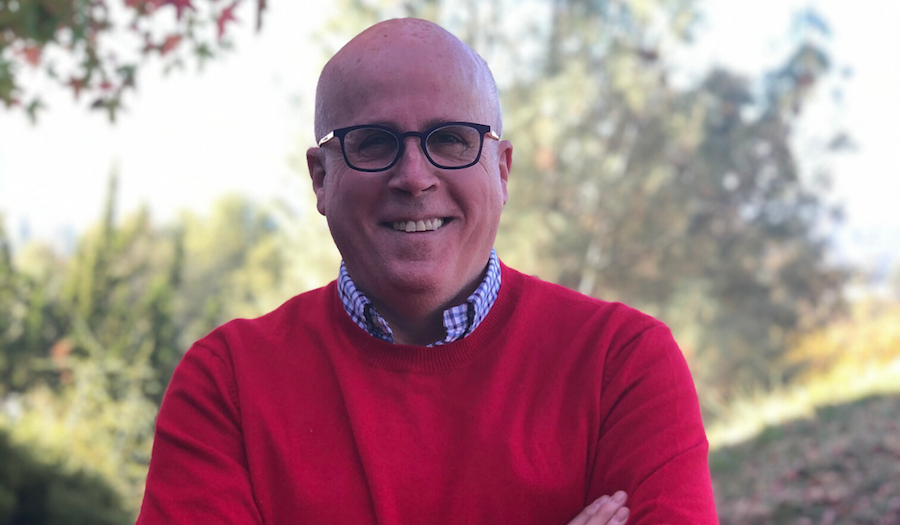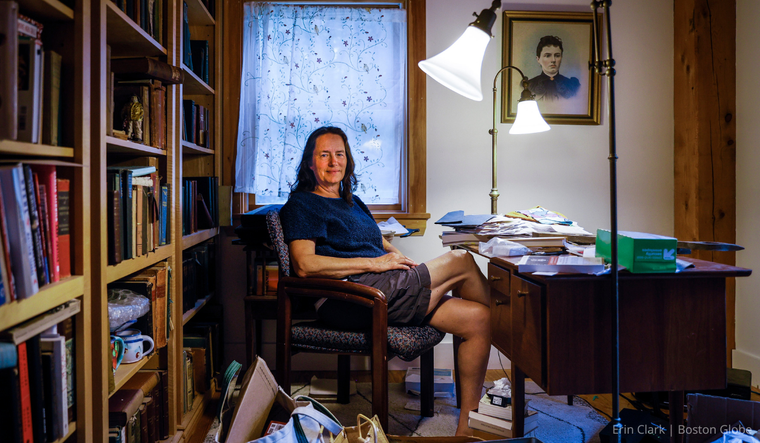Suicide: It's Okay to Talk About It
You don't have to try very hard to find stories of suicide. On the contrary, barely a day passes that we don't see a news item about it. Kids kill themselves when they are bullied, teased, and taunted…beautiful kids like Channing Smith, a Tennessee 16-year-old who took his life recently after being outed on social media as LGBTQ. New York City cops are killing themselves at an alarming rate in what the police commissioner is calling a 'Mental Health Crisis.” The U.S. Department of Veterans Affairs reported a month ago that the suicide rate among those who have served in uniform is not only not improving but rising.And early this month, Matthew Wong, a talented and promising young artist whose work, according to one critic, was 'frequently tinged with a melancholic yearning,” died by suicide after a lifetime struggling with depression, Tourette Syndrome, and autism. No, you don't have to look far.When you read about these people, look at their pictures and you'll hurt. Look at them and you can't help but despair at the vanished potential for love, happiness, accomplishment, and peace. We glance at those faces and feel sadness, fear, and anger. We look at their pictures and sometimes see in their eyes fatigue or despondency.Or maybe we don't. Maybe we don't detect the slightest hint of pain. 'He was a really, really sweet kid,” one of Channing Smith's classmates said after his death.I think that's how it would have been with me if people had looked at my picture…that is, if I'd been successful in my October 26, 2012, suicide attempt. Sure, I'd made no secret about living with depression since my teens. But I'd sent out no signals, and nobody had a clue in the days before that very bad day. Nobody knew.In a time when new treatments and prevention regimens are being discovered for a wide range of illnesses…treatments and cures that improve, extend and save lives…where suicide is concerned, the news is all bad. And for every suicide we hear about, there are, of course, many more that don't make the news...many, many more. Some 130 Americans per day end their own lives, and the trend is moving in the wrong direction.According to the National Alliance on Mental Illness, one in five American adults and one child in six experiences mental illness each year. And suicide is the second leading cause of death for people age 10-34. But fewer than half of us with mental illness get help for it.Imagine if that were the case with cancer or diabetes or heart disease. Imagine if people with cancer waited 11 years to go to a doctor…the average span between the onset of mental illness symptoms and treatment. And that's an awful lot of time for problems to grow and fester and kill.Given all this bad news, what's the answer? What can any of us do when we don't know about the problem right in front of us? We can talk, and we can listen.At the place where I work…and I think this is true everywhere…people tell their colleagues about their illnesses. They describe their sprained joints, their stomach bugs, their surgeries, major and minor. And I don't blame them for doing so. It's natural to share and for people to be concerned. Sometimes our friends have ideas for treatment and recovery options that might be new to us. Sometimes a sympathetic ear is itself a help to someone hurting.But even though the odds are that some of those same co-workers are experiencing mental illness, we don't talk in the same way about mental health. How often do we hear people in the breakroom saying, 'I'm feeling hopeless,” or 'I'm not sure my bipolar meds are working”? Not very often, I'll bet.'Talk Saves Lives.” The American Foundation for Suicide Prevention uses the slogan as part of its suicide prevention training program, and it's also what I have in mind every time I share my story.Help for people feeling desperate will come in many forms. For some, like me, it has been in the form of medicine and good therapy. But whatever the right course is, these people have to stay alive long enough to figure it out, long enough to wake up another day–like I did seven years ago.But before that, we have to let people say they're in trouble. We must give ourselves license to hurt, and to say so without fear. The mantle of shame around mental illness is why people don't get help when they feel bad before they feel bad enough to take a tragic, irreversible step.I don't mean to sugarcoat the picture of living with mental illness. It's a big pain. The suicide reflex is part of my wiring, and understanding that fact has been essential to my staying alive. Where other people get mad, or frustrated, or scared at the everyday woes of life, suicide is my impulse...one of them, anyway. But every time I feel bad, and the impulse strikes, and I don't kill myself, that's another notch on my belt.My mental illness is always with me, like an annoying relative you have to see at Thanksgiving, except that every day is Thanksgiving and your annoying relative moved into your house. There's no cure, just treatment and management. It's what I do.When I tried to kill myself, I knew in my head that it made no sense. I knew there would be no 'me” to feel better. But the pull was strong. Every day I'm here, though, means another day I've resisted the evil pull. Every time I flick it away like a gnat is more proof I can survive. I remind myself of that all the time. I remind myself that somewhere within me is the power to keep going.Of all the ways I might think of myself, powerful doesn't leap to mind, but I guess the fact that I'm sitting here, seven years later, means it's what I am.If you or someone you know is at risk of suicide, please call the Suicide Prevention Lifeline at 800-273-8255. There is always someone there to talk to. Always.
Please note that we may receive affiliate commissions from the sales of linked products.




